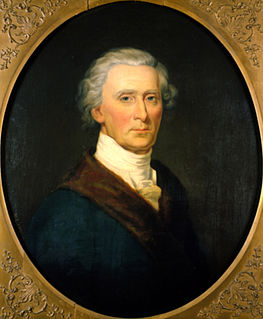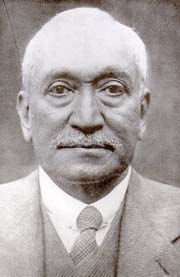A Quote by J. M. Coetzee
The modern state appeals to morality, to religion, and to natural law as the ideological foundation of its existence. At the same time it is prepared to infringe any or all of these in the interest of self-preservation.
Related Quotes
I am a Muslim and . . . my religion makes me be against all forms of racism. It keeps me from judging any man by the color of his skin. It teaches me to judge him by his deeds and his conscious behavior. And it teaches me to be for the rights of all human beings, but especially the Afro-American human being, because my religion is a natural religion, and the first law of nature is self-preservation.
As a matter of law the states recognized no constraints on their legislative scope other than those that were self-imposed. Even where particular state constitutions paid ideological lip service to constraints deriving from religious or natural law doctrines, they reserved to some constitutionally-defined body or person the right to interpret these doctrines.
The most important human endeavor is the striving for morality in our actions. Our inner balance and even our very existence depend on it. Only morality in our actions can give beauty and dignity to life. To make this a living force and bring it to clear consciousness is perhaps the foremost task of education. The foundation of morality should not be made dependent on myth nor tied to any authority lest doubt about the myth or about the legitimacy of the authority imperil the foundation of sound judgment and action.
Politics and morality are inseparable. And as morality's foundation is religion, religion and politics are necessarily related. We need religion as a guide. We need it because we are imperfect, and our government needs the church, because only those humble enough to admit they're sinners can bring to democracy the tolerance it requires in order to survive.
In his address of 19 September 1796, given as he prepared to leave office, President George Washington spoke about the importance of morality to the country's well-being: Of all the dispositions and habits which lead to political prosperity, Religion and Morality are indispensable supports. . . . And let us with caution indulge the supposition that morality can be maintained without religion. . . . Can it be that Providence has not connected the permanent felicity of a Nation with its virtue?
Without morals a republic cannot subsist any length of time; they therefore who are decrying the Christian religion, whose morality is so sublime and pure (and) which insures to the good eternal happiness, are undermining the solid foundation of morals, the best security for the duration of free governments.
The State, of course, is absolutely indispensable to the preservation of law and order, and the promotion of peace and social cooperation. What is unnecessary and evil, what abridges the liberty and threatens the true welfare of the individual, is the State that has usurped excessive powers and grown beyond its legitimate function - the super-State, the socialist State, the redistributive State, in brief, the ironically misnamed 'Welfare State.'
At one time,' Golenishchev continued, either not observing or not willing to observe that both Anna and Vronsky wanted to speak, 'at one time a freethinker was a man who had been brought up in the conception of religion, law, and morality, who reached freethought only after conflict and difficulty. But now a new type of born freethinkers has appeared, who grow up without so much as hearing that there used to be laws of morality, or religion, that authorities existed. They grow up in ideas of negation in everything - in other words, utter savages.
At the same time the Muslims are commanded to exercise self-restraint as much as possible. Force
is a dangerous weapon. It may have to be used for self-defense or self-preservation, but we must
always remember that self-restraint is pleasing in the eyes of Allah. Even when we are fighting, it
should be for a principle not out of passion.







































